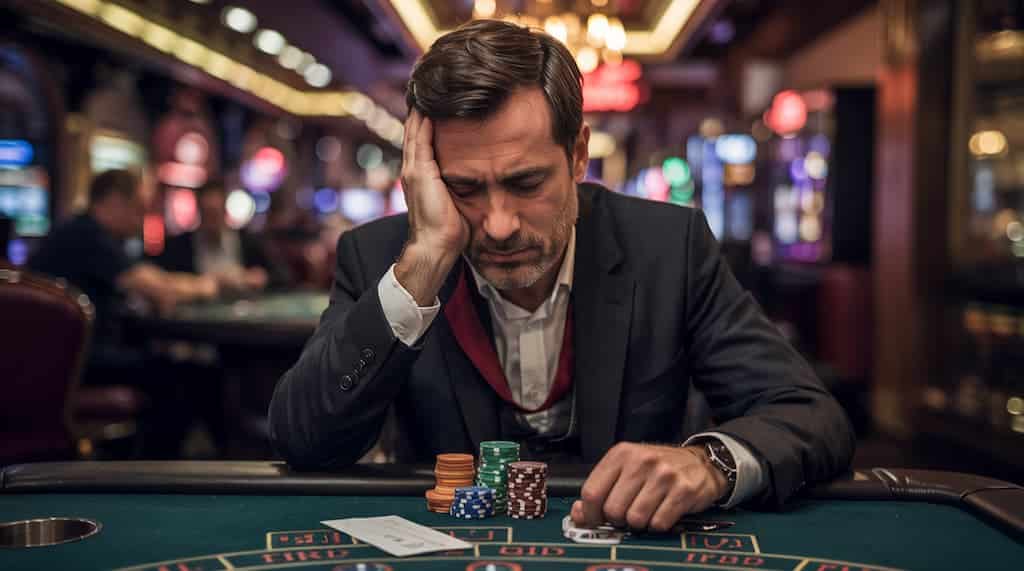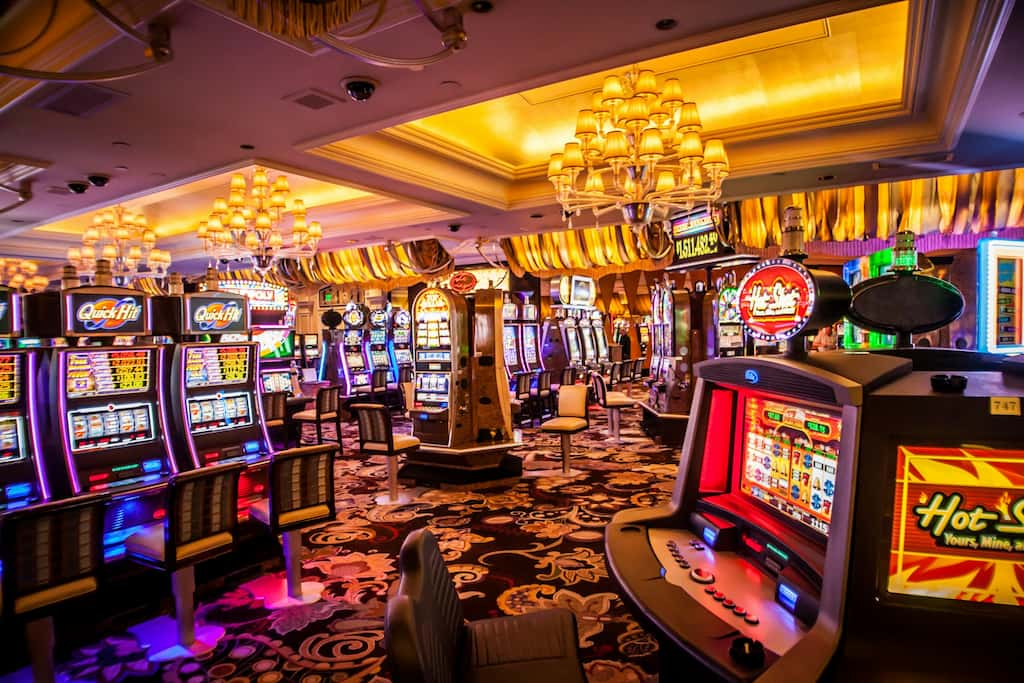How To Keep Safe When Gambling: A Guide To Gambling Responsibly
If you’ve ever been exposed to a gambling advertisement, then you’ll be aware that as part of that gambling message, gamblers are always encouraged to gamble responsibly. Despite this message, many sports betting fans and online casino users have to deal with issues when it comes to their gambling. The problems begin when gambling ceases to be fun, and instead, the thrill of gambling becomes more important than the prospect of winning money or just being entertained.
When the experience of the ‘thrill’ becomes more important than everything else when it comes to gambling, level-headed decision-making becomes harder and eventually impossible. People find themselves spending their entire paycheck on spread bets and ignoring their friends and family to spend more time gambling. It’s the start of a deadly spiral that can lead to both financial and social ruin.
If you feel you are standing on the edge of a gambling disaster, or if you are simply spending more time and money gambling online than you are happy with, then this page is designed for you. We can help you recognize the signs of irresponsible gambling, the steps you can take to step back from this precipice, and the resources you can use to help you get back into the safe zone.
Why Do People Gamble?
People approach gambling in different ways. Some just are not interested in it. Some view it as the cheese on top of their sports pizza. For some, it’s the complete enchilada. For most Americans, watching sports is fun, and especially fun if their favorite teams are involved.
Gambling adds to the fun. If you are watching a basketball game in which the team you follow is not involved, you can choose a side to bet on to add to the thrill of the game. You can also display loyalty to your own team by betting money on them to win if your side is involved. Whatever your reason, gambling exposes you to risk – the potential risk of losing money, balanced by the chance of winning money.

Our brains see pleasure as beneficial, whether you’re eating a good meal, thirsting down on a good beer or a high-class wine, or working your way through a damn fine novel. As a reward for seeking and attaining pleasure, our brain releases a chemical called ‘dopamine’. This is a neurotransmitter, the ‘happiness’ chemical. Our brain is telling us: “This makes you happy, which must be beneficial, so do it more!”
We can become engrossed by a dopamine cycle. Something makes us happy, so we do it more, so we get more dopamine, and so on. Very soon, the mere anticipation of a happy event leads to the release of dopamine, or at least the expectation of the release of dopamine. We’ve all experienced that ‘edgy’ feeling when something good may or may not happen – that’s our brains anticipating that dopamine rush. One word that describes that feeling is ‘risk’. It’s the ‘risk and reward’ cycle, and for many people, the risk becomes just as important as the reward, or even more so.
We Hate it if Our Exposure to Risk is Not Rewarded
Our brains expect the complete cycle – for the exposure to risk to gain its reward. Unfortunately in life, that does not always happen, of course. Most of us simply get on with things, but for some people, the ‘no reward for the risk’ leaves them in a very vulnerable position. When you apply that concept to gambling, it means a losing string of bets, or a string of bets where the reward seems inefficient, can have devastating consequences.
This lack of reward can push some people towards an insatiable feeling to satisfy this need, just like an alcoholic thirsting for a beer or an opioid addict needing prescription drugs. In addition, this ‘fear’ of a lack of a reward can lead to bigger risks, as the bigger the risk, the better the reward. In time, that initial reward can feel meaningless, leading to bigger and bigger bets no matter the detriment to other aspects of daily living that overspending can cause.
Recovering gambling addicts describe gambling addiction as continually riding a roller coaster where the twists, drops, and loops become increasingly adrenaline-inducing with each revolution. However, no matter how thrilling the ride becomes, the actual thrill eventually becomes meaningless, but the ride just won’t stop. If you find yourself on this roller coaster, hopefully, we can tell you how to get off.
Our Brain is Great at Forming Habits
We couldn’t function as people without habits. Say, for example, you’ve heard about a fantastic new restaurant that’s opened, and you want to eat there. You enter the address into your GPS and drive there, and it turns out to be amazing. You may use GPS again to get there for your second trip and maybe even your third. By your fourth trip, you know the way. The next time, you just get into your car, drive, and somehow you end up at the restaurant without even really thinking about the journey.

Our brains don’t like us to sweat the small stuff. If we can do something without even thinking about it, then that gives us more time to think about things that are more important. The boring stuff can be passed off to our subconscious so we can do things without necessarily thinking deeply about it. This is how we form habits. It’s like starting an exercise routine – the first few times may be tough, but once it’s become a habit, it’s actually harder not to do it.
What, you may be asking, has this to do with gambling? We all begin gambling for a reason – to show support, to win money, to make a game more interesting – but for some for whom gambling becomes a habit, that initial reason for gambling fades into the distance. They simply gamble because it’s a habit, and for all of us, whether we gamble or not, a habit is a hard thing to break.
Emotions and Gambling Can Become Hard to Separate
Gambling and emotions can be impossible to keep apart. For a start, there’s the anticipation of winning and losing, the thrill of the game itself, and the potential joy of winning a few (or many) dollars. There are negative emotions, too – the disappointment of potentially wasting money, the disappointment of the hand you wagered upon not winning, the disappointment of not gaining the rewards you were hoping for. How you deal with these emotions depends upon the kind of person you are, as many people are not as good at processing emotions as others.
There is one thing that all successful, professional gamblers all agree on. Gambling is only successful if done logically, and emotions are kept out of it. Gambling can also only be done logically if we are honest with ourselves. Remember, sportsbooks and casinos want you to be dishonest with yourself, and they want you to bet illogically. That way, you are more likely to lose. Unfortunately, logical gambling is hardly romantic, which is why it appeals to so few of us! What’s more romantic, winning $1,000 by betting on red on a roulette wheel for hours on end, or winning $1,000 by betting everything you have on your lucky number and it coming up on the first spin?
You can’t have gambling (or at least gambling that’s any kind of ‘fun’) if it doesn’t involve money. Naturally, money is something else that is heavily tied to emotions. Not having enough money leads to guilt. Most of us dream of having much more money than we could ever spend, and we admire those who have achieved that dream. All of us live in fear of not having enough money to pay our bills. So, you can’t involve money without it involving emotions, and you can’t have ‘meaningful’ gambling if it doesn’t involve money. Separating gambling and emotion is practically impossible.
In conclusion, there are three key takeaways for you from what we have written.
- Gambling is dangerous if it’s not fun. If it’s not fun, then don’t gamble.
- Gambling can become a habit. If gambling is just a habit for you, then don’t gamble.
- Gambling intertwines with emotions. If you can’t gamble without feeling overly emotional about it, negatively or positively, then don’t gamble.
Responsible Gambling – Facts and Figures
If you need help with your gambling issues, then there are plenty of ways you can get help, and there are plenty of ways in which you can help yourself. The following tips, if you follow them correctly and as part of your gambling approach, should help you steer clear of any issues: Below are some ways you can take the initiative when it comes to your online gambling, If you feel you are spending too much time and/or money at an online gambling site, then you can ask to self-exclude for a period of time or even permanently. All licensed sites should allow you to do this. If you feel that is not enough, then most US states run voluntary self-exclusion schemes. You can join a scheme for a limited period – usually one year, two years, or five years – or for a lifetime. The National Problem Gambling Helpline is operated by the National Council on Problem Gambling and can be contacted at 1-800-GAMBLER. This helpline acts as a one-stop hub connecting people looking for assistance with a gambling problem to local resources. There exists a network of 28 contact centers that cover all US states and territories. The helpline is open all hours of the day, all days of the year, and offers call, text, and chat services. Since 1957, Gamblers Anonymous has been providing support for those people who struggle to maintain their gambling at appropriate levels. Gamblers Anonymous offers a wealth of resources aimed at helping anyone who is currently struggling with their gambling, including face-to-face meetings, assistance over the phone, and alternative methods of support available online. Phone: (909) 931-9056. It is not only problem gamblers who are affected by gambling addiction, it is their loved ones too. Gam-Anon helps both people with gambling problems and the family and friends of people with gambling problems. It serves as a way of sharing experiences and receiving support and can offer help via in-person meetings plus telephone, online, and email support. Phone: 718-352-1671. If you wish to prevent yourself from accessing US gambling sites online, then you can do so via a number of tools. One of them is BetBlocker, which is an anonymous app that maintains a list of global gambling websites (over 85,000). Once installed, it will prevent anyone using the device upon which it runs from accessing any of those sites. Gamban works in much the same way, but offers a free trial after which a paid account is required. GamBlock is another such tool that also cannot be circumvented by the use of a VPN. Any state not listed does not have a specific organization to help people deal with problem gambling. On such occasions, please call the National Problem Gambling Helpline instead.
Tools and Strategies to Help You Gamble Responsibly
Self-Exclusion
The National Problem Gambling Helpline
Gamblers Anonymous
Gam-Anon
US Gambling Website Blocking Tools
Responsible Gambling Help – State by State
State
Organization
Tel No.
Alabama
Alabama Council on Compulsive Gambling
334-277-5100
Arizona
Arizona Council on Compulsive Gambling
800-777-7207
Arkansas
Arkansas Problem Gambling Council
501-403-2321
California
California Council on Problem Gambling
714-765-5804
Colorado
Problem Gambling Coalition of Colorado
303-662-0772
Connecticut
Connecticut Council on Problem Gambling
959-230-4034
Delaware
Delaware Council on Gambling Problems
302-655-3261
Florida
Florida Council on Compulsive Gambling
888-236-4848
Illinois
Illinois Council on Problem Gambling
833-937-4274
Indiana
Indiana Council on Problem Gambling
317-632-1364
Kansas
Kansas Coalition on Problem Gambling
785-266-8666
Kentucky
Kentucky Council on Problem Gambling
502-223-1823
Louisiana
Louisiana Association on Compulsive Gambling
318-227-0883
Maine
Maine Council on Problem Gambling
207-626-2615
Maryland
Maryland Council on Problem Gambling
443-292-2809
Massachusetts
Massachusetts Council on Gaming and Health
617-426-4554
Michigan
Michigan Association on Problem Gambling
517-672-6904
Minnesota
Minnesota Alliance on Problem Gambling
612-424-8595
Mississippi
Mississippi Council on Problem and Compulsive Gambling
601-853-8351
Montana
Montana Council on Problem Gambling
406-438-1276
Nebraska
Nebraska Council on Problem Gambling
402-890-0504
Nevada
Nevada Council on Problem Gambling
702-369-9740
New Hampshire
New Hampshire Problem Gambling Helpline
603-724-1605
New Jersey
Council on Compulsive Gambling of New Jersey
609-588-5515
New Mexico
New Mexico Council on Problem Gambling
505-897-1000
New York
New York Council on Problem Gambling
518-867-4084
North Carolina
North Carolina Council on Problem Gambling
336-370-6952
Ohio
The Problem Gambling Network of Ohio
614-750-9899
Oklahoma
Oklahoma Association on Problem Gambling and Gaming
405-801-3329
Oregon
Oregon Council on Problem Gambling
971-361-9333
Pennsylvania
Council on Compulsive Gambling of Pennsylvania
215-643-4542
Rhode Island
Rhode Island Council on Problem Gambling
401-354-2877
Virginia
Virginia Council on Problem Gambling
804-827-0921
Washington
Washington Problem Gambling Helpline
1-800-547-6133
Wisconsin
Wisconsin Council on Problem Gambling
920-437-8888
Wyoming
Wyoming Council on Problem Gambling
307-620-2655

